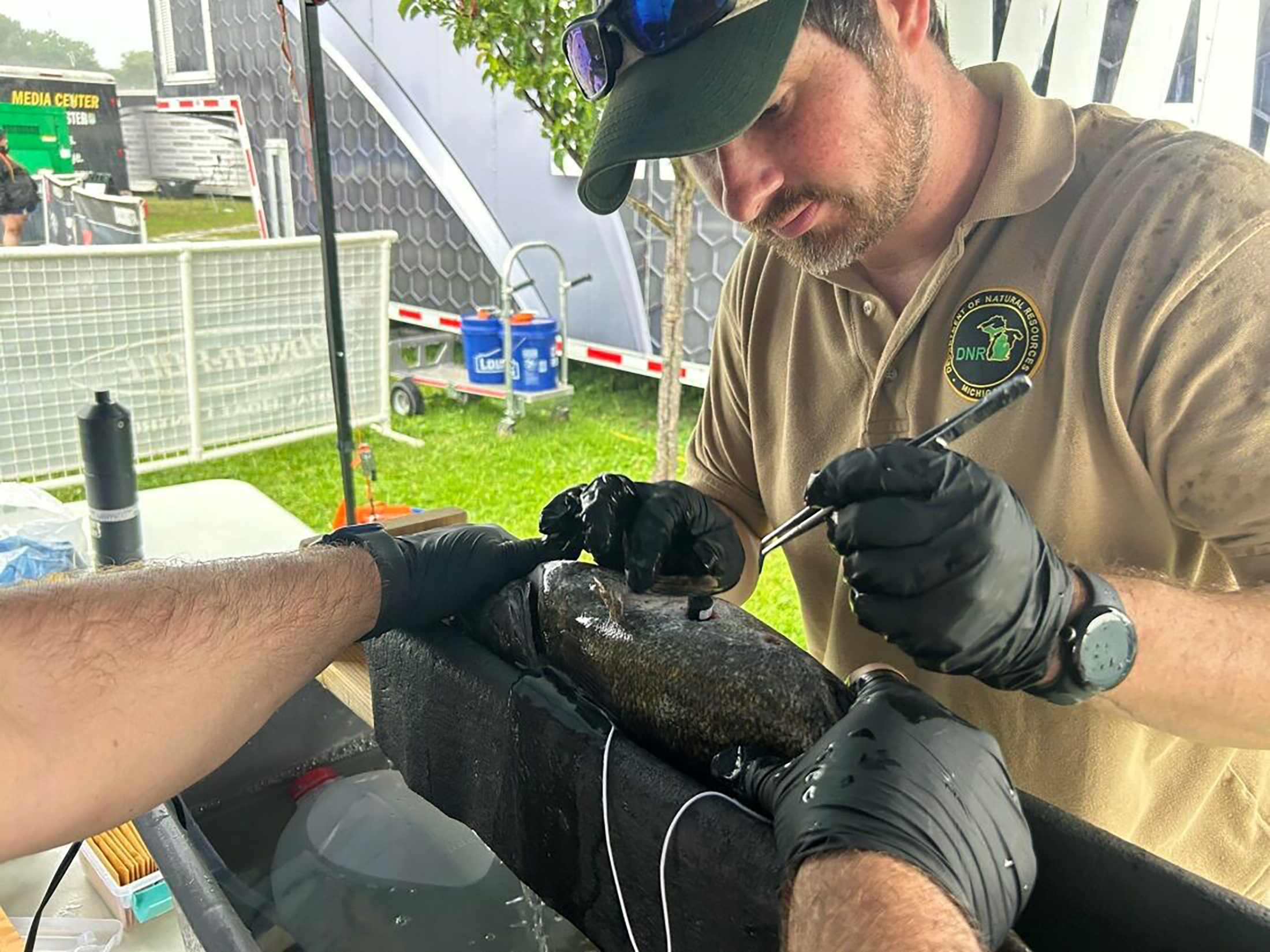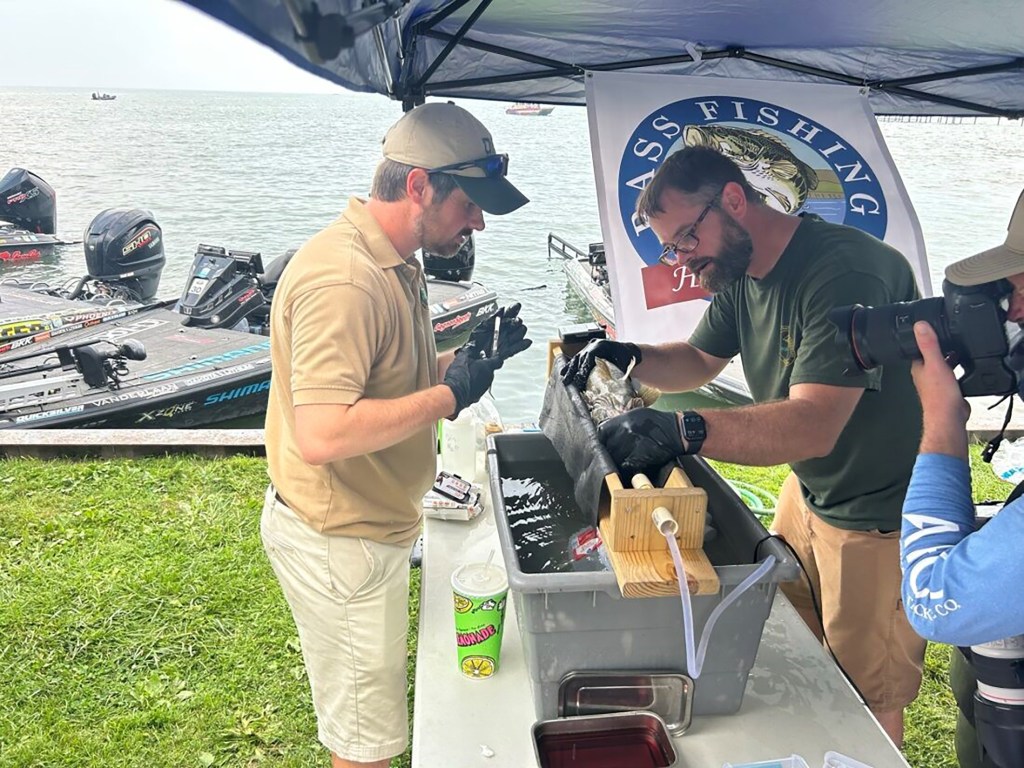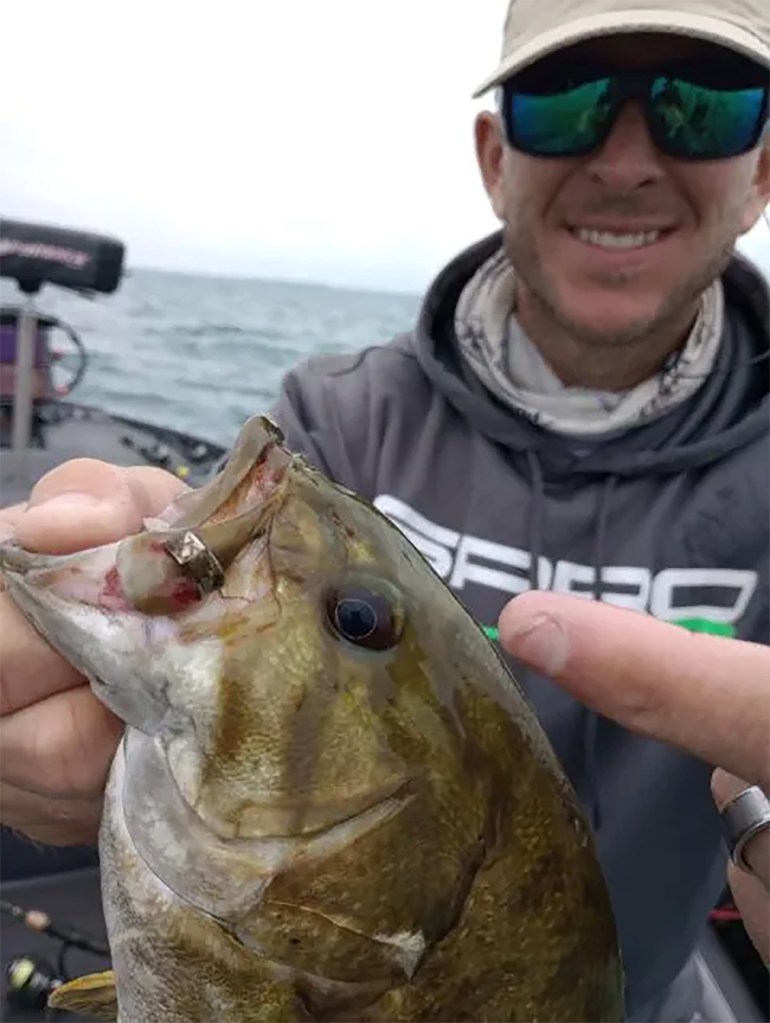
By JAN-MICHAEL HESSENAUER
Fisheries research biologist
Michigan Department of Natural Resources
Lake St. Clair, nestled between the St. Clair and Detroit rivers in southeast Michigan, is one of the premier smallmouth bass fisheries in the world.
As reported in “Status of the Fisheries in Michigan Waters of Lake Erie and Lake St. Clair 2022,” numbers from the Michigan Department of Natural Resources Master Angler program – in which anglers can submit documentation of trophy-sized catches of more than 50 species – shore up the lake’s reputation as a trophy smallmouth bass fishing hotspot.
“Statistics from the Master Angler program indicate that Lake St. Clair is the premier waterbody in the state for trophy smallmouth bass,” the report stated. “With 46 entries in the Master Angler program in 2022, Lake St. Clair represented 29% of the total smallmouth bass entries statewide.
“The continued strong representation of Lake St. Clair and adjoining waters in the smallmouth bass statewide Master Angler program is likely a reflection of an abundance of trophy-size smallmouth bass in the lake, a high degree of angler effort targeting the species, and widespread practice of catch-and-release among smallmouth bass anglers.”
The DNR Lake St. Clair Fisheries Research Station has been extensively monitoring the lake’s smallmouth bass population for decades to ensure the health and sustainability of this outstanding fishery. Annual monitoring activities include trap netting, trawling and jaw tagging.
See a Lake St. Clair smallmouth bass fact sheet.
DNR researchers are now using new tools and developing new partnerships to better understand smallmouth bass movements and behaviors in the lake.
Lake St. Clair is a component of the connecting channel system draining the upper Great Lakes of Superior, Huron and Michigan into the lower Great Lakes of Erie and Ontario via the St. Clair River and Detroit River.
As a result, a huge volume of water moves through the system quickly. Nearly all of Lake St. Clair includes ideal smallmouth bass habitat, and its size and depth make the study of the species’ behavior and movement a daunting task.
Acoustic telemetry represents a revolutionary technology for studying fish populations in the Great Lakes. This technology allows researchers to surgically implant tags in fish, which transmit an electronic signal that is unique to each fish. While not audible to human ears, this signal can be detected and stored by passive listening stations located throughout Lake St. Clair and the rest of the Great Lakes via the Great Lakes Acoustic Telemetry Observation System, also known as GLATOS.
This technology has provided amazing insights into the behaviors of lake sturgeon, walleye, muskellunge and other species in Lake St. Clair and beyond.
In July 2023, DNR researchers partnered with the Bass Anglers Sportsman Society to tag smallmouth bass at the Bassmaster Elite Series tournament held at Brandenburg Park on Lake St. Clair.

Using tags purchased through a conservation grant provided by the Bass Fishing Hall of Fame, 15 smallmouth bass that were captured and weighed in by professional anglers were acoustically tagged and given an external jaw tag.
Society tournament staffers allowed DNR researchers access to their BASSTrakk system, which records GPS coordinates for every fish coming into the weigh-in. This allowed the researchers to select fish caught from different locations within the system for tagging.
These tagged smallmouth bass will provide information about how fish behave and respond to capture in competitive fishing events, especially in situations where fish are transported many miles from their original capture location.
“Previous Bass Fishing Hall of Fame Grants have gone to organizations doing fish habitat enhancements or tournament fish-care projects. This grant to the Michigan DNR is the first one provided to a state agency for a true research project,” said Gene Gilliland, society conservation director and a board member of the Bass Fishing Hall of Fame.
Additionally, after answering questions in the short term about fish behavior after weigh-in at a competitive angling event, each tag’s three-year life will ensure that the tagged fish will continue to provide valuable information to fisheries managers and anglers about how and when smallmouth bass use the different types of habitats available in Lake St. Clair long after the fish were tagged.
Fisheries research is “a large part of why many of our fisheries here in the U.S. are top-notch. It also provides an interesting look into the behavior and migration patterns of the fish we chase,” professional angler Shaye Baker wrote in a blog post about the research project on the society’s website.

The 15 fish tagged at the Bassmaster Elite Series tournament joined 46 other fish that the DNR implanted with acoustic tags in 2021. These smallmouth bass, and thousands of others tagged with Michigan DNR jaw tags since 2002, will continue providing valuable insight into the behavior of the species.
Watch a short video about smallmouth bass acoustic tagging in Lake St. Clair.
Data and summaries from this and other work can be found in the annual report that will be available on the Lake St. Clair Fisheries Research Station webpage in the coming months.
Check out previous Showcasing the DNR stories in our archive at Michigan.gov/DNRStories. To subscribe to upcoming Showcasing articles, sign up for free email delivery at Michigan.gov/DNREmail.




